- Home
- J. Robert Kennedy
Pompeii's Ghosts (A James Acton Thriller, #9) Page 2
Pompeii's Ghosts (A James Acton Thriller, #9) Read online
Page 2
He had to admit that was the truth. He had loved those movies and even read the novels, voraciously devouring anything he could related to the character, and when he finished that, he chewed through the entire archeology and ancient history section of his limited school library.
He fell in love with history.
Especially ancient history.
Roman history was his favorite. The great empires. Greco, Roman, Egyptian, Mongol, Caliphate. Not to mention the more modern ones, British, French, Ottoman, Soviet, Nazi and American. He was fascinated by them all, and how similar they were in nature, no matter how old or new. Empires rose, thrived, and fell. It was inevitable, and he was convinced the empire he lived in now was collapsing. Would it take a thousand years like the Roman to fall, or would it be rapid like the British. World War Two essentially ended it for them. Would one good war end it for America? Had one good war already ended it and we just didn’t know it yet?
He found himself preoccupied with that thought quite often, and he hoped that with today’s knowledge of the past and our technology, along with a shared and distributed information source like the Internet, Western civilization just may avoid the hard fall that so many before had experienced, and instead might ride out the current dip. But with challengers to the throne all around, from the new economic powerhouse of communist China, to the growing powerhouses of India and Brazil, along with a resurgent and belligerent Soviet Union Version 2.0 if the West were to survive, it would need to defeat not only these external forces economically and perhaps militarily, but also the enemies from within who would destroy what previous generations had sacrificed so much to build. Whether they were immigrant and Muslim groups trying to change the way of life that created the wonderful countries they wanted to now live in, or those who would have us feel shame for actually being great countries amongst comparative cesspools, or even those who were perfectly content to sit back and live off the avails of the great Western nations while contributing nothing, all would need to be defeated.
A daunting task.
He could never understand why someone would risk everything to flee their country to come and live in one of the Western democracies, then immediately try to change their new home to be more like their old home. Acton had lost count of the number of discussions he had had with his students on the topic. They made for lively debates, and he was open to all views on the matter, as long as the arguments were civil and productive. Unfortunately he found too many times with today’s youth they had too difficult a time putting together a cogent argument, and instead resorted to insults, cursing, or complaining to some civil liberties group about the professor who challenged politically correct thinking, when in fact all he was doing was forcing them to participate in the greatest freedom of all.
Freedom of speech.
He thought of the movie Raiders of the Lost Ark and how in the end the government had taken the ark and hidden it in a warehouse, the wonders of the find forever lost to history except for a cameo in a fantastic sequel with a riveting story line almost thirty years later.
But not this time.
This time the treasure they had unearthed was public.
A little too public for his liking.
And it was loaded in the hold of this very plane, a priceless trove worth almost a full billion dollars if simply melted down. But they weren’t conquistadors, Spaniards melting down priceless Incan and Aztec treasures merely for the metal and gemstones. They were archeologists, trying to preserve the past.
And in this case it meant secrecy and heavy security, the former of which had failed miserably, thanks most likely to the completely inept and corrupt United Nations that had handled the negotiations. If there was one organization on the planet that needed a major overhaul, it was the UN. Any organization so warped as to name countries like Iran to head up women’s rights had to be shutdown. What was needed in his opinion was a United Democratic Nations, rather than a collection of dictators constantly looking for ways to make Israel look bad instead of actually furthering human rights and bettering mankind.
And the permanent Security Council? Again, why should non-democracies like China and Russia have veto power? And for that matter, why should the United States? If the UN was supposed to be a democratic institution, even if its member states were not, why should there be veto power?
Because you couldn’t trust the vast majority of the membership to not pass resolution after resolution impacting the democracies of the world. Though that wasn’t the original intent of the veto power—it was more to create a balance between the West and the communists after World War II—it had now become a balance between the West and the Muslim and African nations of the world, few of which were democracies and few of which gave equal rights to all of their citizens, especially women.
Though half a dozen had died yesterday, he and Laura had made it out alive with a massive trove of gold the bureaucrats were concerned about though not the preserved archeological find they had hoped for. He had breathed a tremendous sigh of relief when the massive transport had taken off and left Eritrea behind. He had been a little leery however, the enormous Antonov An-124 Ruslan being insisted upon by the Eritreans, including a “non-Western” crew.
Acton would prefer to be sitting in the back of a good old American C17 Globemaster with a dozen armed Delta operators surrounding him, rather than their current situation of a private Russian aircraft with private contractors at the controls and those who had survived yesterday’s attack of an unarmed group of security “observers”, two from each of the permanent members of the United Nations Security Council, along with two from Italy, the ultimate destination of the treasure they had found.
But he did have to admit he felt a lot better when the two American observers had been introduced to him. Dawson and one of his Delta Force cohorts, a Korean-American, Sergeant Carl “Niner” Sung, were well known to Acton. He trusted them with his life despite an inauspicious beginning to their relationship years ago.
He looked back out the window, wondering if his mind was playing tricks on him, he too now certain they were descending. “There is a reason, isn’t there? Some air traffic issue?”
There was no reply.
Acton looked away from the window and was surprised to find the two seats beside him empty, Dawson and Niner walking toward the front of the aircraft. It had been configured with several dozen seats at the front for the passengers, and behind a temporary wall was the hoard of gold bars they had retrieved. Another transport with his fiancée on board had lifted off only moments before them, carrying the remains of the ship that had contained the gold and its hallowed crew, the origin of which was astonishing.
In fact, he had found it almost impossible to believe when he had put the pieces together.
Raised voices from the front had him focus on what was going on. Dawson was jabbing a finger toward one of the private security that the Eritreans had insisted upon, someone Dawson had identified as ex-Russian Spetsnaz.
Suddenly the man stepped back and pulled a weapon, squeezing two shots off into Dawson’ chest. His body sailed backward half a dozen feet, his chest shoved back, his arms and legs stretched out in front of him like a marionette that had been suddenly yanked by its master.
Acton gasped, jumping to his feet as Niner stepped forward, using a combination of moves so fast Acton’s mind couldn’t even process them, a mere split second later resulting in Niner with the man’s weapon and a round pumped into the previous owner’s head, Niner dropping to a knee and spinning to his right, firing two shots into another guard before he could react.
But his weapon did, the man’s finger clenching on the trigger, firing a single round through the fuselage. Wind howled through the cabin as alarms began to blare. The plane suddenly plunged into a rapid dive, tossing all those aboard around, Acton bear hugging the seat in front of him as the oxygen masks dropped.
He pushed himself back into his seat, grabbing the lap belt and fastening it, yank
ing it tight as he reached up for a mask. Fitting it over his mouth, he leaned into the aisle and his heart sank.
The body of Command Sergeant Major Burt Dawson had tumbled forward against the front of the cabin.
Lifeless.
And as the plane continued its rapid descent, his thoughts turned to the one person he wished he was with this very moment, but thankful he wasn’t.
The love of his life, Laura.
He reached into his pocket and pulled out the satellite phone. With one hand pressed against the seatback in front of him, he dialed with the other. It rang several times then went to voicemail, her voice, so beautiful, the last one he would hear in this lifetime.
He took a steadying breath then removed the mask from his face.
“Hi babe, it’s me!” he shouted over the whine of the engines, pausing to take another breath through the mask. “I don’t have much time. There’s been some sort of hijacking attempt on the plane and we’re going down. Dawson was killed by the private security and a stray bullet caused us to depressurize.” He sucked in another breath. “We’re in a steep dive, so hopefully we’ll be okay.”
Another breath, and one final thought.
“But if we don’t make it, know that I love you, and that I treasured every moment we’ve spent together. These last few years have been the greatest of my life, and if I die today, you’ve made my life worth living. Give my love to Mom and Dad, and to Greg and his family. I love you, hon, and I’m sorry I—”
The plane jerked to the left, the pilot apparently losing control, tossing him violently, causing the phone to fly from his hand and bounce along the left wall of the fuselage toward the front of the plane. He battled to straighten himself, finally succeeding, their angle now giving him a clear view of the ground below, and the impossibly close road that had only minutes before seemed so far away.
He closed his eyes, gripping the arms of his seat hard, his mind filled with only one regret.
A regret that at this moment seemed terribly selfish.
And as the engines whined, the cries of some of the passengers competing with the turbines, he thought of all the heartache that was about to be caused.
As Pompeii claimed its last victims.
“Pliny the Elder” Residence, Misenum, Roman Empire
August 24th, 79 AD
“Uncle, what do you make of it?”
Plinius, standing on the veranda he hadn’t left since the Emperor departed for Rome, turned to see his young nephew, Gaius, emerge from the house, scroll and stylus ever present. Plinius extended his hand and the young man took it, standing beside his uncle. They both stared across the bay at the sight before them. The ground continued to shake, the frequency making the pauses between tremors almost unnoticeable, and the sky across the bay continued to darken, far too early for this time of day.
Across the water the mighty Vesuvius continued to spew its innards skyward, a straight plume firing high into the sky then outward, like a tall palm tree, whatever it was ejecting eventually falling back down to earth in all directions.
Plinius looked at his nephew, a mere seventeen years old, and already about to begin what he was certain would be a successful legal career. His gaze returned to the plume that now dominated the horizon.
“I don’t know what to make of it. I’ve never witnessed such a thing before. I’ve heard of it, of course, but never seen a volcano erupt with my own eyes.”
“It’s beautiful,” murmured Gaius. “Terrifying, but beautiful.”
Plinius nodded, uncertain he shared his young nephew’s opinion. “It is terrifying.” He motioned toward the scrolls. “Your studies?”
Gaius nodded. “Yes, Uncle.”
Plinius pursed his lips. “Perhaps today it would be better to record what you see here. I fear history is being made, and we are to become pawns to the gods’ wrath.”
“I shall record everything diligently, Uncle.”
Plinius put his arm around his young protégé, he himself a dull yet successful lawyer for many years while the dreaded Nero held the throne, during which it was best to keep a low profile lest the head that stood above the crowd be lopped off in one of his tantrums. When Vespasian had finally won the throne during the civil war, or as it had become known, the Year of the Four Emperors, Plinius had reemerged, eagerly sought after by the emperor as a man he could trust that was also capable.
It had eventually resulted in him being named Prefect of the Fleet, and his station here in Misenum. As he gazed out at the harbor housing the dozens of vessels at his command, he quickly came to a decision.
He snapped his fingers.
A servant rushed forward.
“Have my cutter prepared. I wish to observe what is happening across the bay.”
The servant bowed then ran off as Plinius turned to his nephew. “Do you wish to accompany me? It could be of historical and scientific interest.”
Gaius shook his head. “No, I think I’ll remain here with Mother, you know how she is. Besides, I have a feeling observing from a distance will give me a better perspective on what is truly happening.”
Plinius smiled, knowing his nephew was right. Charging into the midst of this curious phenomenon was probably foolhardy, but curiosity was always one of his weaknesses. He knew Gaius was incredibly curious as well, but he also knew his mother would never allow him to head toward the danger regardless of whether or not his uncle was foolish enough to do so.
“I think that is wise,” said Plinius, who then motioned toward the scrolls. “And make no mention of our guests today. No matter what happens, history must never record that our Emperor was present.”
“Understood, Uncle,” said Gaius with a slight bow.
And as if to emphasize the point, the ground jerked suddenly, knocking them both off their feet.
Outside Omhajer, Eritrea
Present Day, Six weeks before the crash
Birhan absentmindedly swatted at the flies competing for access to his rotting teeth. They didn’t bother him, and if any got in and were eaten, so be it, his stomach welcoming any nourishment, no matter the form. He tapped his cane on the ground at one of his herd that was straying from the road, the goat’s bleat of protest preceding a leap back into the group.
Birhan chewed on his khat, it’s mildly stimulating effect keeping him alert, the near constant habit making him numb to the reality of his existence if he went without. For that’s all it was, though he knew little better. Existence. His wife was dead years ago from famine along with five of his six children, his only remaining child a daughter he couldn’t marry off, a dowry so far out of reach it wasn’t even a dream.
He had arranged to sell her two years ago, the burden of providing for her simply too much, but she had begged him not to, and once he had met the beast of a Saudi that was looking to purchase some of the village’s girls, he had backed out of the deal, realizing he’d be unable to live with himself knowing such a man would be bedding down his daughter against her will.
Feeding two mouths was difficult, especially off the small percentage of the seasonal profits he was paid by the land owner whose heard he tended, but it was nice to have someone at home at the end of the day to prepare the miserly meals and keep the humble single room home they lived in clean and tidy. Abrihet was a good girl, though not terribly attractive, the poor girl cursed with his looks rather than her mother’s.
Which meant she would be doomed to a lonely existence unless he could find some way to come up with a dowry so one of the men of the village would find it worth their while to take her on as a wife.
And it would have to be soon, she getting older by the minute.
A bleat behind him had him spinning, the khat having him on the razor’s edge of giddiness. A goat had somehow been left behind. He cursed and shuffled after it, the creature disappearing over the nearby embankment. As he climbed the rise he paused a moment upon reaching the top, taking in several deep breaths and enjoying the sight of the Tekezé River be
low. On the other side of the river marked Ethiopian territory.
Birhan spat on the ground at the mere thought of their enemy.
He had lost many friends and relatives in the war, but fortunately for him he was too old to fight. Sighing at the thought of why anyone would fight over desert, he spotted the runaway about twenty paces away. Clicking at the creature, he rounded it from the opposite side of where he wanted it to go, then gave the cane a flick, the snap as it smacked the ground had the creature rushing back toward the herd, and Birhan following.
His foot stubbed something in the sand, causing him to pause and wince in pain.
What’s this?
He knelt on one knee and moved some sand aside. An old, dry piece of wood was revealed. He was about to dismiss it when rivulets of sand began to slowly cascade down the hill toward the river below, revealing more of the piece of wood he had just stumbled upon.
A boat?
The piece of wood was curved, like the hull of a boat might be. A jolt of excitement raced through his worn body at the thought of his daughter’s dowry possibly being buried right here, underneath the sand he walked by on a daily basis. He quickly swept away more of the sand, revealing more of the buried wood, and within minutes there was no doubt that this was a buried boat, and if it were seaworthy, it was a boat he could sell in town and provide the money necessary to marry off his daughter so she could begin her life.
And leave him alone.
The thought caused him to pause, but he realized that he must continue, his selfish moment never to be mentioned, her happiness all he was concerned about. As he cleared more and more of the sand away, he began to realize how massive the boat was, and glanced over his shoulder at the river, easily several hundred paces away.
How did they ever drag it here?
The thought it had been brought here during a flood only to be scuttled on the shore had his chest tightening as his heart began to sink, the next curved board broken only several feet into its sweep along the prow. After several more minutes of digging, it was clear that this boat hadn’t been seaworthy in a long time, nor would it ever be again.

_preview.jpg) The Protocol (A James Acton Thriller, Book #1)
The Protocol (A James Acton Thriller, Book #1)_preview.jpg) Depraved Difference (A Detective Shakespeare Mystery, Book #1)
Depraved Difference (A Detective Shakespeare Mystery, Book #1)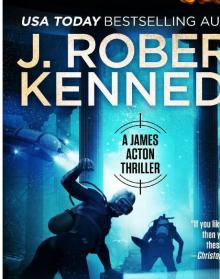 Atlantis Lost
Atlantis Lost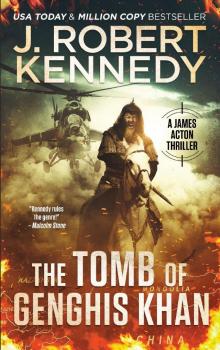 The Tomb of Genghis Khan
The Tomb of Genghis Khan_preview.jpg) Rogue Operator (A Special Agent Dylan Kane Thriller, Book #1)
Rogue Operator (A Special Agent Dylan Kane Thriller, Book #1)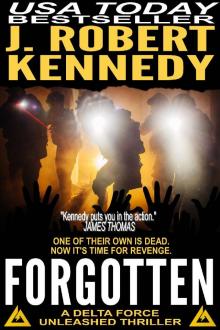 Forgotten
Forgotten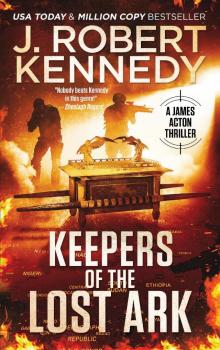 Keepers of the Lost Ark
Keepers of the Lost Ark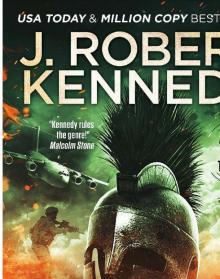 The Cylon Curse
The Cylon Curse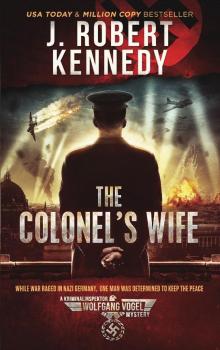 The Colonel's Wife
The Colonel's Wife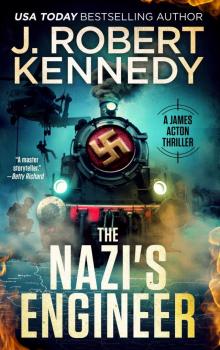 The Nazi's Engineer
The Nazi's Engineer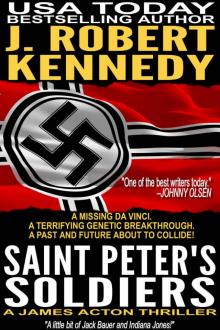 Saint Peter's Soldiers (A James Acton Thriller, Book #14)
Saint Peter's Soldiers (A James Acton Thriller, Book #14)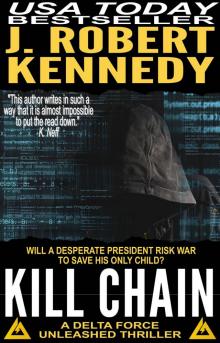 Kill Chain
Kill Chain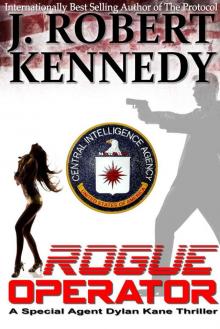 Rogue Operator
Rogue Operator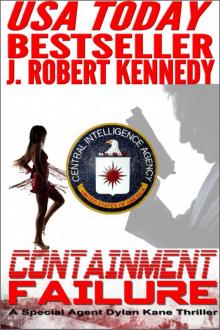 Containment Failure (A Special Agent Dylan Kane Thriller, Book #2)
Containment Failure (A Special Agent Dylan Kane Thriller, Book #2)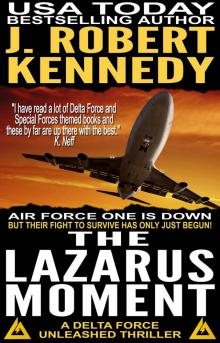 The Lazarus Moment
The Lazarus Moment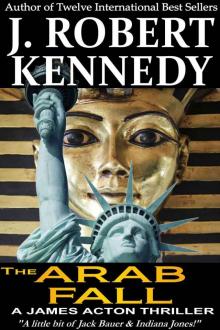 The Arab Fall (A James Acton Thriller, Book #6) (James Acton Thrillers)
The Arab Fall (A James Acton Thriller, Book #6) (James Acton Thrillers) Payback
Payback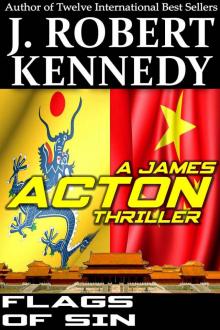 Flags of Sin - 05
Flags of Sin - 05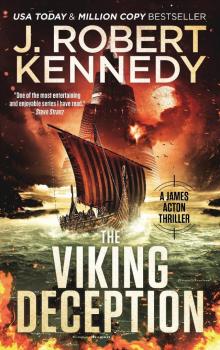 The Viking Deception
The Viking Deception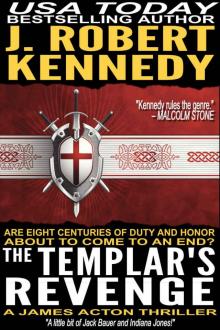 The Templar's Revenge (A James Acton Thriller, #19) (James Acton Thrillers)
The Templar's Revenge (A James Acton Thriller, #19) (James Acton Thrillers)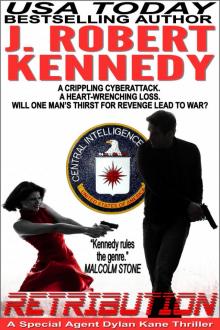 Retribution - A Special Agent Dylan Kane Thriller Book #7
Retribution - A Special Agent Dylan Kane Thriller Book #7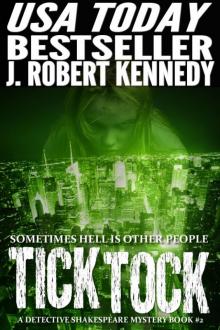 Tick Tock (A Detective Shakespeare Mystery, Book #2)
Tick Tock (A Detective Shakespeare Mystery, Book #2)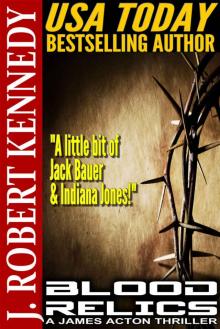 Blood Relics (A James Acton Thriller, #12)
Blood Relics (A James Acton Thriller, #12)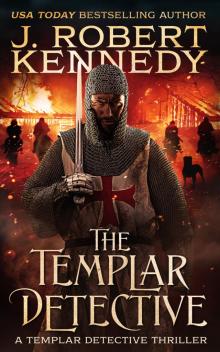 The Templar Detective
The Templar Detective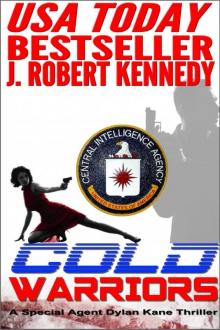 Cold Warriors (A Special Agent Dylan Kane Thriller, Book #3)
Cold Warriors (A Special Agent Dylan Kane Thriller, Book #3)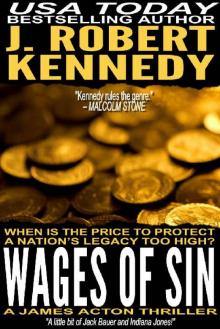 Wages of Sin (A James Acton Thriller, #17) (James Acton Thrillers)
Wages of Sin (A James Acton Thriller, #17) (James Acton Thrillers) The Templar Detective and the Parisian Adulteress
The Templar Detective and the Parisian Adulteress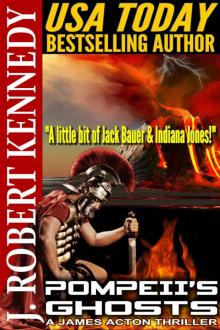 Pompeii's Ghosts (A James Acton Thriller, #9)
Pompeii's Ghosts (A James Acton Thriller, #9)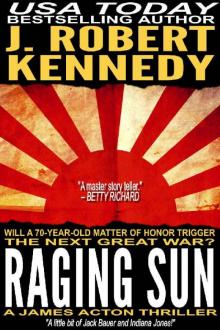 Raging Sun (A James Acton Thriller, #16) (James Acton Thrillers)
Raging Sun (A James Acton Thriller, #16) (James Acton Thrillers)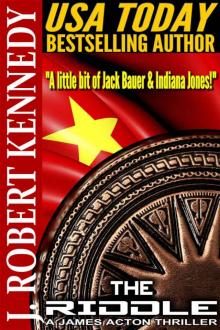 The Riddle (A James Acton Thriller, Book #11)
The Riddle (A James Acton Thriller, Book #11)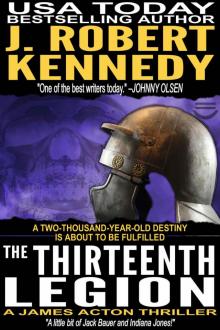 The Thirteenth Legion (A James Acton Thriller, #15) (James Acton Thrillers)
The Thirteenth Legion (A James Acton Thriller, #15) (James Acton Thrillers)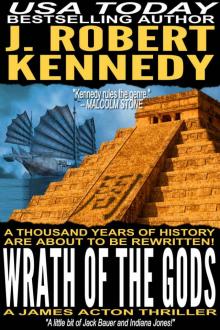 Wrath of the Gods (A James Acton Thriller, #18) (James Acton Thrillers)
Wrath of the Gods (A James Acton Thriller, #18) (James Acton Thrillers)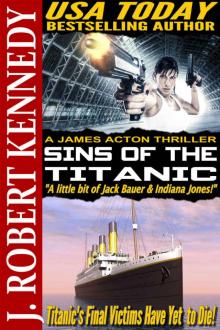 Sins of the Titanic (A James Acton Thriller, #13)
Sins of the Titanic (A James Acton Thriller, #13)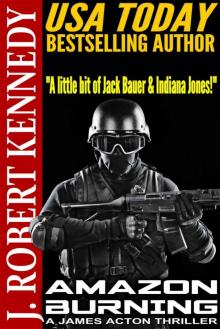 Amazon Burning (A James Acton Thriller, #10)
Amazon Burning (A James Acton Thriller, #10)